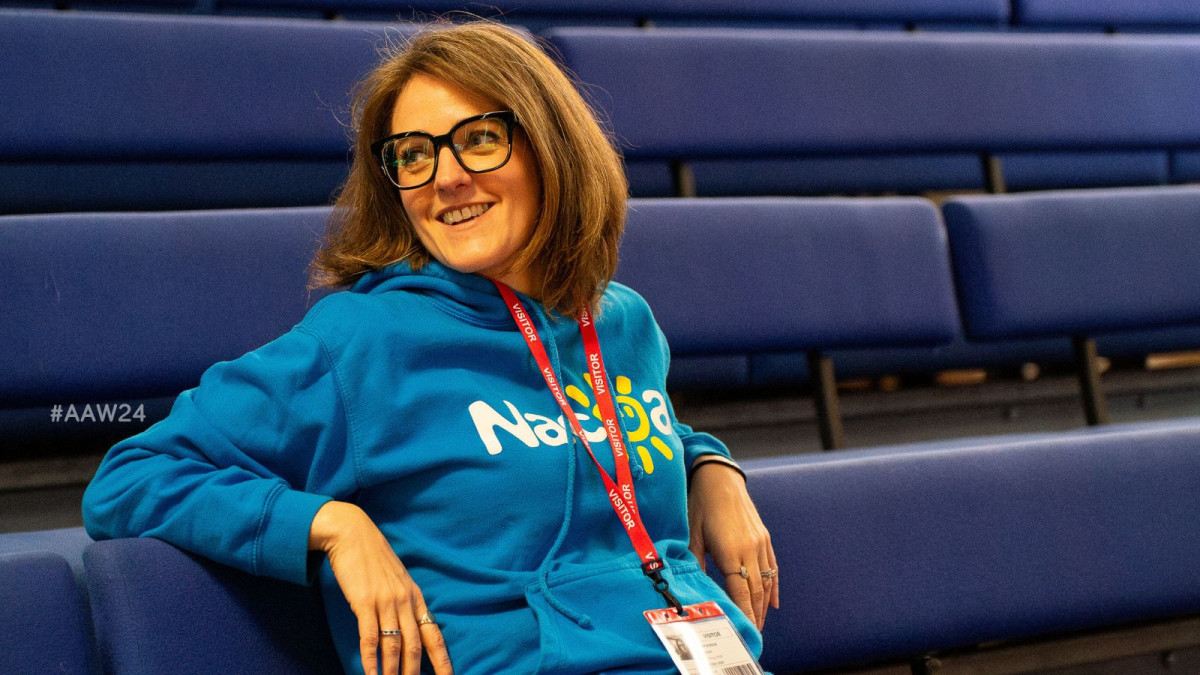
I’m Amy and I am the adult child of an alcoholic. I’m also a Trustee and Outreach Programme Manager for the charity Nacoa UK – the national charity for everyone affected by a parent’s drinking.
I’m so proud that I have been able to use my personal experience of having an alcoholic parent to try to help others facing the same situation.
My dad died in 2020 from multiple alcohol related illnesses after decades of addiction. It took him dying for me to fully accept that he had a problem and he wasn’t going to get better, and to seek the help for myself that I wish I had found years before.
Why didn’t I seek help when he was alive? It’s a question I’ve asked and been asked many times. There are many reasons, but an honest answer is that I was ashamed and feared the judgment and stigma attached to alcohol addiction.
I felt that people judged me and my dad, and spent most of my time alternating between despair and desperately wanting him to get better. I didn’t know at the time that 1 in 5 children in the UK have a parent who drinks too much. I felt like I was the only one and that nobody in the world would understand.
I didn’t know that without early support, children of alcohol-dependent parents are:
- six times as likely to witness domestic violence
- three times as likely to consider suicide
- three times as likely to develop alcoholism or addiction themselves
I didn’t know that 50% of children with alcohol-dependent parents have told no-one else about the family secret they face at home. You learn the rules, don’t talk, don’t trust, don’t feel. It leaves a legacy of mistrust and guessing at normality.
I couldn’t have told you Dad was an alcoholic because he kept saying he wasn’t and everyone else around avoided talking about it. The denial didn’t help things, it just isolated us further, leaving my sibling and I to cope without professional help, support, or advice.
Wider family and friends lost contact with him as his addiction grew and his behaviour became very difficult, rarely asking how he was, and almost never asking how I was coping with it all. I was so jealous that they could cut him out, but also so furious that nobody cared about him, and therefore, by extension, me. The burden was heavy, overwhelming, and affected almost every aspect of my life for too long.
Finding Nacoa
It was only after my Dad died that I found Nacoa. It was, quite simply, life- changing.
Nacoa was founded in 1990 to provide information, support, and advice for everyone affected by a parent’s drinking in the UK. For many, it’s the first time they have broken their silence to seek help.
For me, Nacoa gifted me the space to grieve and to understand what had happened. I devoured the personal experience stories on their website – amazed that there were other people out there who carried the same complex feelings and who were saying it all out loud.
I learned the Nacoa six C’s:
I didn’t cause it
I can’t control it
I can’t cure it
I can take care of myself
I can communicate my feelings
I can make healthy choices
I can’t tell you how vital that message is for somebody who believes they are responsible for their parent’s drinking.
With alcohol deaths at an all-time high – a 27% increase in five years – our work has never been more vital to empower and support the next generation to make healthy choices for themselves.
Moving Forwards
The thing we hear most is: “I wish I’d known about Nacoa sooner!”.
Earlier this year I was delighted to be appointed Outreach Programme Manager for Nacoa, with responsibility for rolling out our ambitious schools project. We are visiting at least 100 schools over the next two years, delivering help and guidance where it is needed most, so that the next generations do know about Nacoa sooner and feel empowered to seek the help, support, and advice they deserve.
I wish I’d known sooner. I wish I had known that I could speak to someone confidentially and say all the things I couldn’t say to anyone else: that I didn’t love my dad the same as I used to;, that he’d changed beyond recognition;, that I found him unbearable;, he drank all the time;, he ruined every event we invited him to;, that I was absolutely exhausted and wanted it to be over.
I wish I’d been able to call someone when it was over to say that I was devastated, that I would do it all differently (or would I?), that I saw he had tried to stop, and that I now understood he’d been powerless over his addiction. That maybe it was an illness and not just the selfish choice I’d believed it had been.
Our founder and CEO Hilary Henriques once said: “Change does not happen in an instant but never doubt that a simple action like talking to someone who cares can make a difference.”
I wish I’d had my one interaction a lot sooner than I did. And I will continue to work as hard as I can to ensure that others hear the message - they are not alone if they have been affected by parental alcohol addiction.
It is imperative that we continue to remove the judgment and stigma that surrounds alcohol addiction and those affected by it.